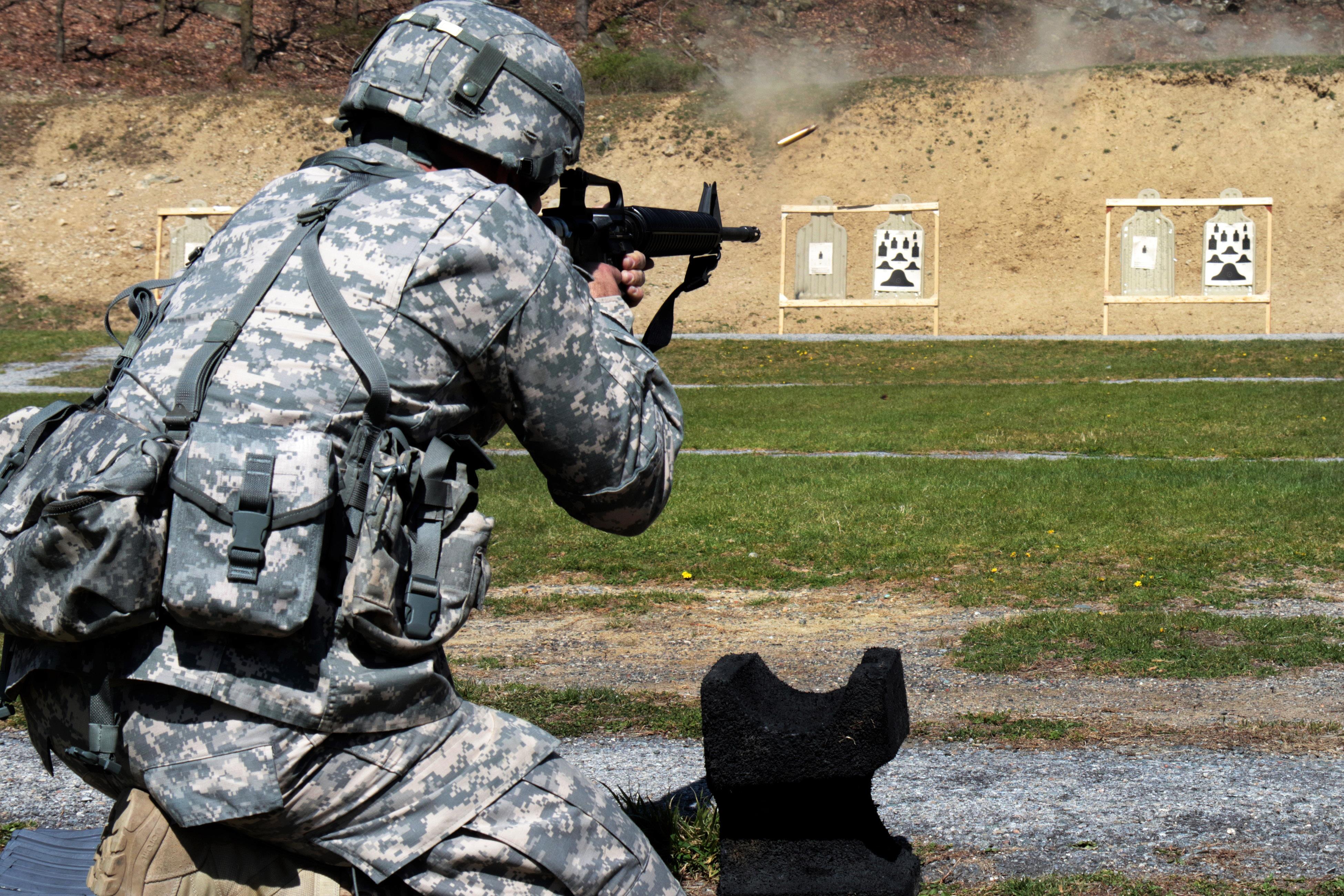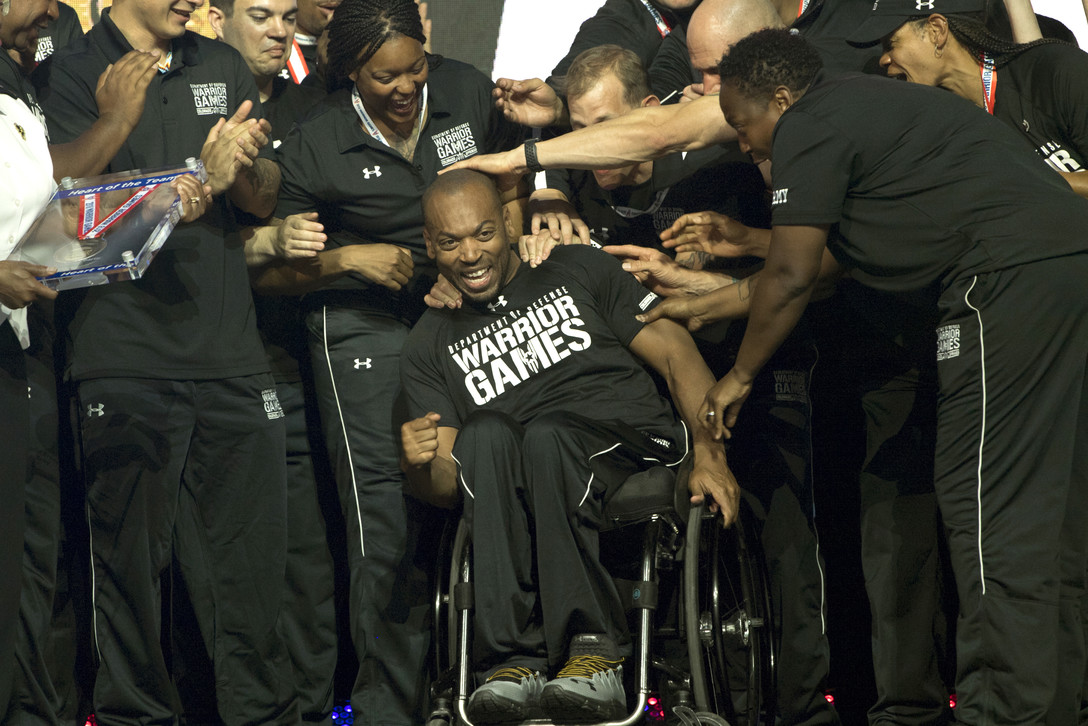This was originally posted on the Military Spouse Advocacy Network blog, and I’m honored to be working with them! You can read the original post, and find more great information for those who support service members and veterans most, by going here.
Just as the body goes into shock after a physical trauma, so does the human psyche go into shock after the impact of a major loss – Anne Grant
An unfortunate fact of deployments and separation for military families is the inherent danger and risk that comes with military service. Invariably, regrettably, that danger and risk culminates in heartbreaking loss. My wife had the opportunity to participate in a spousal support network that would be mobilized whenever a service member’s spouse was notified of a loss; the burden of this emotion was significant. The depiction of family member notification in movies such as, Saving Private Ryan and We Were Soldiers, is heartbreaking, while at the same time does not give the raw emotion of such notifications any justice. The nightmare of every spouse is the knock on the door by service members in dress uniform.
At the same time, one of the most enduring painful things that many veterans and service members experience is the loss of one of their own. That loss often does not happen in a vacuum or in isolation, even though we might want it to. We often don’t know how to comfort others in their grief, even if we know how to comfort ourselves. Service members and veterans carry this burden of grief and loss long after events occur, and this can be difficult for those that care for them.
Here are some ways to understand and cope with loss:
Loss can be fresh, long after it has occurred
I lost my first brother in arms when I was nineteen years old. I had been in the military for just over a year, and had only been in Germany for ten months. The tragedy of his loss was that it was preventable, and it was the result of a double tragedy. The loss occurred due to a drunk driving accident, and he was a passenger in a car driven by another one of our best friends. In one regrettable, avoidable split second, dozens of lives were irrevocably changed. Even thinking about it now, twenty-three years later, I am struck by the memory of that day, of that time, of the pain of that loss. My children know of his loss, as a cautionary tale and reminder of his legacy. They played the song, Wish You Were Here, by Pink Floyd, at his memorial service. Every time the song comes on the radio…and it’s one of my favorites…I think of him. I think of that time.
This is an important point to remember…the losses that we experience will remain with us for years, if not decades to come. Sometimes it’s a daily reminder, other times it’s on the anniversary of the day that it happened. Realizing that things will be different when someone you care about has lost someone that matters to them is very significant. The change may be small, or it may be huge, but it’s still a change. The emotions linger for a long time, and understanding when and why it happens can be a great way to give your support.
Anniversaries matter
When a service member experiences a loss, remembering the anniversary of that loss is extremely important. Several years ago, I went through an anniversary reaction, and wasn’t really aware of it. I started to lose focus at work, forgot deadlines, and was distracted. My supervisor asked if everything was okay, and I assured her that it was…but something inside me told me that it wasn’t. I was irritable at home, more than usual, as my wife would say. I couldn’t put my finger on it, as the week went past, but then my wife made a passing comment, quietly, “It’s the end of October, isn’t it?”. That’s when I realized…this was the week before October 25th, the day we lost Sergeant Wolf. I somehow seemed to have forgotten, but my wife didn’t. She knew, almost better than I did, that the third week in October is always difficult for me. Some years it’s easier, some years it’s harder, but it’s always difficult.
It can be hard keeping track of these kinds of dates. It’s easier knowing the celebration dates…birthdays, anniversaries. Those kinds of things go on a calendar in our house. But why would we put reminders of the worst days of our lives on the calendar? That’s not what I’m recommending, but I do suggest that we familiarize ourselves with those dates that are significant to the service members we come in contact with. This is often reserved for those closest to the service member or veteran…not something for a casual co-worker or boss to know about, but for those who know the service member best. Knowing when these dates are approaching, and supporting the service member or veteran as best we can during that time, can make the pain less. It can make healing happen.
Remembering the fullness of the life lost is better than remembering the end
I often recognize when I’m working with a veteran, that we tend to focus on the moment of loss, rather than pay attention to the life that was lived. It’s as if we only have a snapshot, a single picture, and that picture is of the moment that it ended. Instead, it is helpful to look at the movie of that person’s life, rather than the single frame of their death. Helping the service member to remember the life of the one lost is one way to show support during the aftermath. One of the things that can make the loss unbearable and unable to be talked about is the fact that we focus on the end, and we ask ourselves the question, “What more could we have done?”. The night we lost Joe, my friend I discussed earlier, I saw him as we were both going out. He was going to his club, I was going to mine with a different group of friends. We were planning on having a Single Soldier BBQ the next day, and reminded each other of it. I’ve often asked myself, what if I would have said, “Be careful?”. What if we had all gone together? What if…?
Supporting someone who has endured a loss many times means listening to stories about the one who they have lost. Sometimes it might be asking to hear stories about the life, rather than the end. Laughing at the jokes, appreciating the service, enjoying the celebration of their life, while also appropriately mourning their death, and helping to remind the service member of why they cared for their lost friend so much, to understand why the loss is so painful.
Coming to terms with the loss does not diminish the sacrifice of the lost
Another aspect of the loss of a fellow service member that I often see is the idea that, if I stop feeling pain every time I think of them, then their loss won’t matter to me. Many veterans I work with have this idea, that they must continue to experience the pain of the loss, or it won’t be meaningful them. The implied belief is, “If I am okay with their death, then that means that I’m a bad person,” or something like that. This is an unhelpful truth that we often tell ourselves, and it can keep us in a stuck place.
It may be hard to relate this to the service members we support, but keeping this in mind can be extremely beneficial. When we see them start to smile at the memory of their lost brother or sister, rather than cry, we can support that, encourage that. We can help them experience more of it.By being supportive, listening, and encouraging, we can help to ease the burden of grief that many service members carry.This is an unfortunate fact of military life, the loss that comes with the danger and risk. It’s part of what service members sign up for, and it’s part of what the service member’s spouse signs up for when they come on this journey with us. While not an easy subject to consider, it’s the truth, and the truth is never a bad thing.
How have you supported your service member or veteran in dealing with their loss? What has worked…and not worked…for you? We’d love to hear it via email or in the comments below.

The Head Space and Timing Blog is supported by the Colorado Veterans Health and Wellness Agency, a 501(c)3 Nonprofit in Colorado Springs, Colorado. The goal of the CVHWA is to provide military culturally competent mental health counseling to veterans and their spouses, regardless of characterization of discharge, time of service, or era of service. Our vision is to assist veterans to identify and remove barriers to their mental, physical, emotional, and behavioral wellness. For questions or inquiries, contact us!



